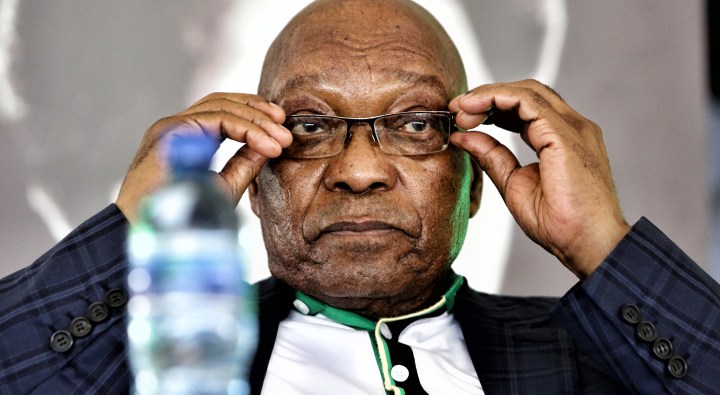LAW OF THE LAND
ConCourt slams Zuma for signing unconstitutional SADC deal

The Constitutional Court has again ruled against former president Jacob Zuma. The court said in a judgment that his role in thwarting the powers of the SADC Tribunal was unconstitutional, unlawful and irrational. The court upheld South Africa’s commitment to international human rights.
The Constitutional Court issued a scathing judgment against former president Jacob Zuma’s decision to sign a South African Development Community (SADC) decision in 2014 that removed its tribunal’s powers over member states in the wake of Zimbabwe’s land reform dispute.
On 11 December, the court confirmed an order made by the North Gauteng High Court and said the president must withdraw his signature from the agreement.
“The president’s decision to render the tribunal dysfunctional is unconstitutional, unlawful and irrational. And so is his signature. The appropriate remedy is simply to declare his participation in arriving at that decision, his own decision and signing of the protocol, constitutionally invalid, unlawful and irrational,” said Chief Justice Mogoeng Mogoeng in the majority judgment, supported by six other justices.
A number of Zimbabwean farmers approached the SADC Tribunal after their land was expropriated during the country’s land reform process under former president Robert Mugabe. The tribunal is effectively a court of last resort and could rule whether a country has acted according to its constitution.
The Zimbabwean government had removed its courts’ pre-existing jurisdiction over expropriation without compensation disputes, making the tribunal the last option for those aggrieved by the land process. Chief Justice Mogoeng said of the issues:
“It is fundamentally about challenging the expropriation of land without compensation and the intended removal of the tribunal’s jurisdiction to determine the validity of that kind of land expropriation that was done in terms of the Constitution of Zimbabwe.”
The tribunal ruled Zimbabwe had violated the SADC treaty and ruled in favour of the farmers, ordering the country to comply with the decision that said they should get their land back. The country refused.
Zuma and other SADC leaders then systematically stripped the tribunal of its powers to avoid a repeat of the embarrassment and thwart being held accountable by an outside institution.
A SADC summit resolved to suspend the operations of the tribunal by not replacing members whose terms had expired or were expiring, meaning it couldn’t quorate. SADC leaders also signed a moratorium on referring individual cases to the tribunal.
Both moves have had the effect of “rendering it effectively as good as dissolved”, said the Constitutional Court judgment.
The effect, said Mogoeng, “of this provision is to strip the tribunal of its jurisdiction over individual disputes, including a challenge to what they regard as violations of the treaty in relation to human rights, democracy and the rule of law”.
The court said Zimbabwe had designed the plan and Zuma was a willing ally. SADC failed to follow the correct procedure in suspending the tribunal’s operations; Zuma never presented the protocol to Parliament to be ratified and he ignored South Africa’s obligations to international law.
“The president signed a protocol that unabashedly sought to put us and the people of SADC in a position that is worse than before,” said Mogoeng.
“In signing the protocol, the president was effectively issuing a very serious threat to all citizens that their right of access to justice through the tribunal was going to be taken away,” Mogoeng continued.
“He was, in reality, announcing to SADC and the world at large that a critical aspect of what defines our constitutional democracy will no longer be respected, protected, promoted or fulfilled.”
The applicants in the case, including the Law Society of South Africa, four individuals and two companies, were represented by Lawyers for Human Rights (LHR). The Southern African Litigation Centre and Centre for Applied Legal Studies joined as amici curiae.
LHR’s Wayne Ncube said:
“Fundamentally, this case concerns the right of access to justice and specifically access to courts at a regional level.”
“The issue for determination before the court was whether the president acted constitutionally, irrationally and unlawfully in participating in the decision to essentially suspend the SADC Tribunal. The outcome confirms that where executive power is exercised — on the international stage or otherwise — such power must be in line with the principles of the Constitution,” Ncube added.
AfriForum added its voice, with CEO Kallie Kriel saying he would consult Zimbabwean farmers on taking the South African government to court to claim compensation.
“Now that the highest court in South Africa has found that Zuma, as head of state, had acted unlawfully to the detriment of Zimbabwean farmers, it means that the South African government could be held liable for the losses suffered by farmers because of South Africa’s action to suspend the activities of the SADC Tribunal,” Kriel said.
Zimbabwean President Emmerson Mnangagwa’s government has said it has allocated US$53-million to compensate white farmers whose land was taken. DM


















 Become an Insider
Become an Insider